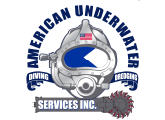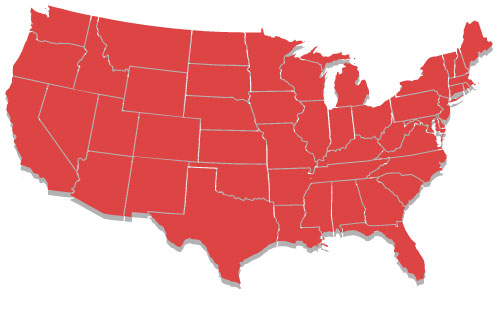Anthony Dulio at American Underwater Services are experts in commercial diving. He has put together this article about 10 Interesting Facts About Commercial Divers. If you have any questions about commercial diving contact Anthony directly.
Commercial divers risk life and limb every time they enter the water. It’s one of the most mentally and physically demanding jobs out there. It’s also one of the most dangerous. Divers must be in prime physical condition and undergo countless hours of training and retraining before they can set a single foot into the water.
There’s no room for error when it comes to keeping a diver alive while he’s underwater, and this is why it takes an entire crew of highly trained professionals to accompany the diver on the job.
We’ve compiled ten interesting facts about commercial divers that we’d like to share with you. After reading them, you’ll have a better appreciation for the brave people who suit up and willfully descend into the cold, murky depths of a lake or ocean.
Around 6 Divers Die Each Year
The CDC estimates that there were around 3,280 commercial divers in the U.S. in 2017. From 2011 to 2016, around 34 divers perished each year while on the job. There are many dangers that could have caused these fatalities:
- Deep pressure
- Falling metal beams
- Falling equipment
- Drowning
- Bends
This is why it’s so important that you choose a reputable commercial diving company such as American Underwater Services. We don’t allow our crews or divers to set a single toe into any body of water until we’re 100% certain of their safety and the safety of people around them. Our divers and crews go through rigorous and extensive training to ensure successful job completion and their safe return to the surface of the water.
Diving Suits are Sometimes Heated
The deeper you go, the colder it gets. For jobs that require diving deeper than 80 feet in depth, a heated suit is a must. It helps protect the diver from hypothermia and allows them to maintain their mental faculties. After all, would you like going into work where your office was a chilly 30 degrees Farenheight?
They Sometimes Find Bodies
An unfortunate aspect of diving is that sometimes the diver will come across a previously unknown human body. It could be from a diving accident or suicide. By law, the divers are required to report the find to the Coast Guard and the local authorities.
They Sometimes Dive into Raw Sewage
Commercial divers sometimes have to dive into poop-filled pools of water at wastewater treatment plants to fix broken machinery. In situations like this, they’ll suit up in a sealed dry suit that prevents any of the bacteria-laden sewage water from coming in contact with their bodies.
This is one of the more dangerous jobs that commercial divers can undertake because if there’s an accidental rip in their dry suit, they could be exposed to some pretty nasty and potentially fatal bacteria.
Divers Carry Knives
No, they don’t carry knives to do battle with man-eating sharks. Divers carry knives in case they accidentally get into a situation where they become trapped. Loose fishing lines or other materials such as seaweed can sometimes get wrapped around the body or gear of a diver. A knife carried on their legs can help them instantly free themselves from what could turn into a hazardous situation.
They Sometimes Feed Fish
Divers can inadvertently wind up feeding fish if they’re tasked with clearing marine life and other debris around an area. This can consist of small mollusks and crabs that the local fish find irresistible.
While sharks can swim by a diver working in the ocean, the chances of an encounter are usually slim to none. Sharks are solitary creatures and are smart enough to realize that a diver isn’t on the menu.
Delta P
The laws of physics still apply even when underwater. Delta P is something that all divers fear and respect. It is a condition that exists in pipes wherein the internal pressure is much higher than the surrounding environment. This means that if a diver gets too close to a crack in the pipeline, they can literally be sucked into a very small hole in a fraction of a second.
The video below gives you an example of just how dangerous Delta P is:
Professional Commercial Divers
At American Underwater Services, we have decades of experience in commercial diving. We can safely tackle any job, no matter how big or small. If you have a commercial diving job that you’d like to discuss, give us a call at (817) 377-8512 or stop by our website for more information.
[author_box]


